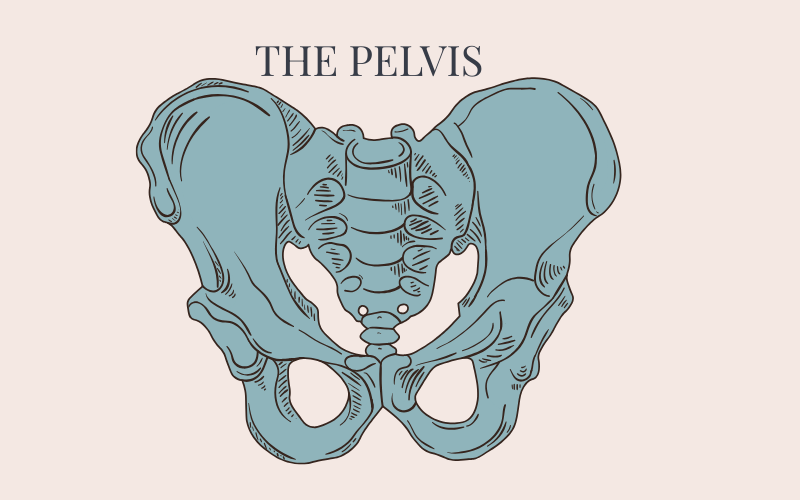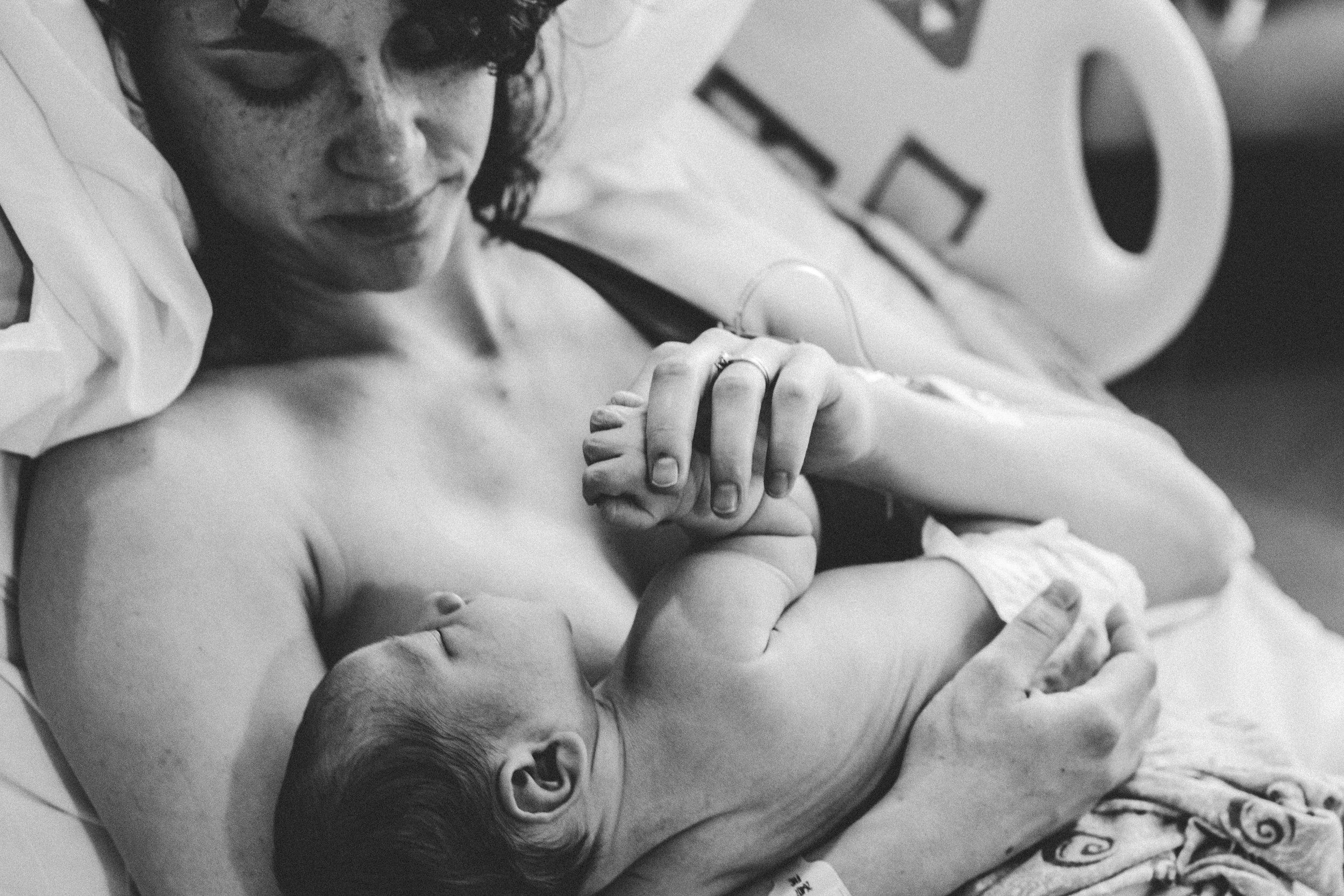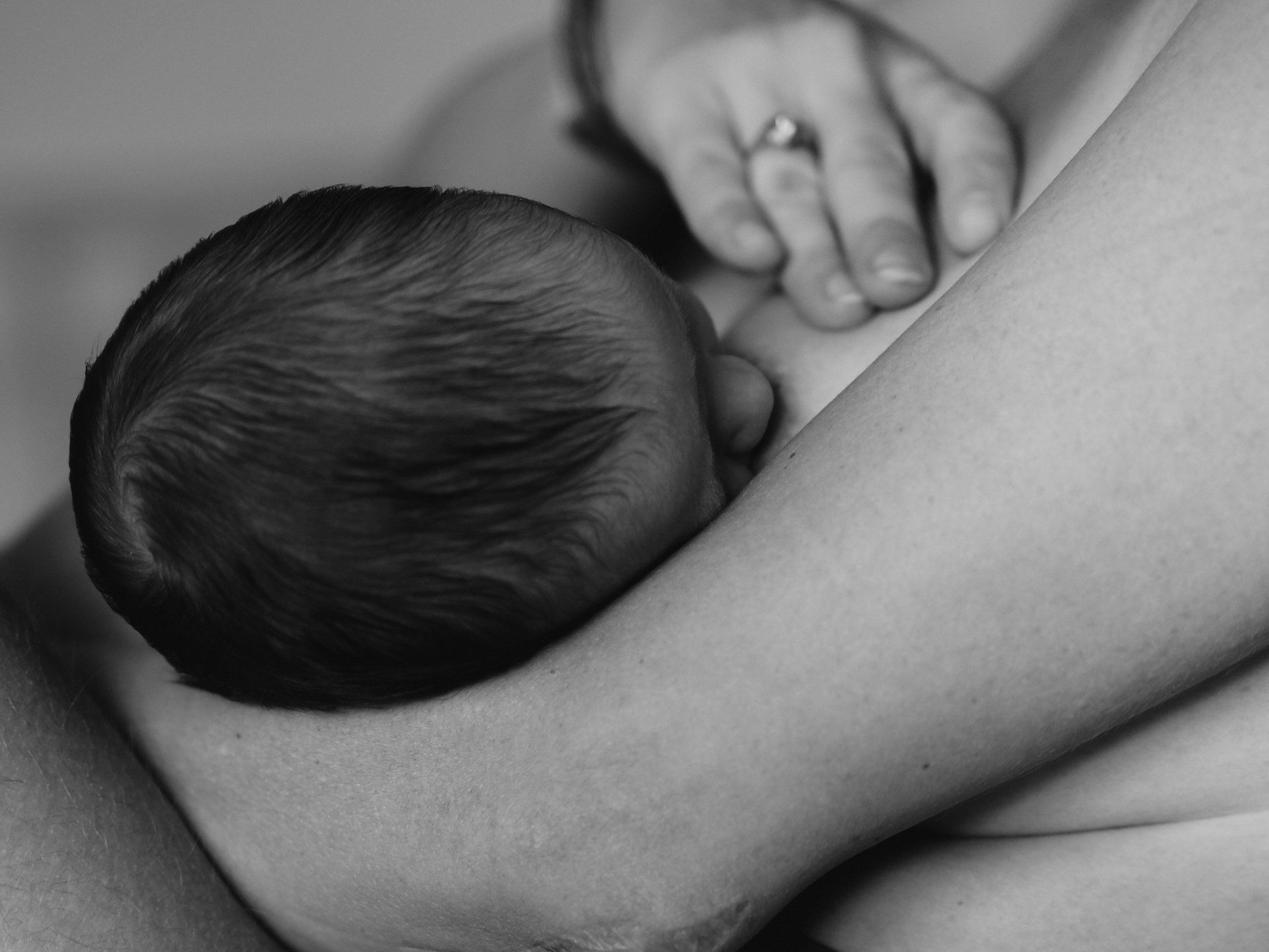
Understanding hCG and Progesterone: Your First Pregnancy Hormones
When you first become pregnant, your body undergoes a remarkable hormonal transformation — a delicate, finely tuned process that sustains early pregnancy and supports the development of new life. Two key hormones take the lead in these first crucial weeks: human chorionic gonadotropin (hCG) and progesterone. Understanding their roles helps explain everything from positive pregnancy tests to the early pregnancy symptoms many women experience.

Why Your Hips, Back, and Posture Feel Different After Having a Baby
You carried life. You grew and birthed an entire human being. So it’s no surprise that your body — especially your hips, back, and posture — feels different after having a baby. But while many mums brush this off as “just part of motherhood,” the truth is that these changes often have a clear physical cause… and support is available to help you feel strong and comfortable again.

The Four Phases of Your Cycle and How They Affect Conception
Understanding your menstrual cycle is one of the most powerful tools in fertility awareness. Many women are unaware of the intricate hormonal and physiological changes that occur each month, yet these changes play a crucial role in conception. This guide will break down the four phases of your cycle, explain the science behind them, and offer practical insights for women trying to conceive.

How the Brain Remembers Birth: The Science of Emotion, Memory, and Meaning
Birth is more than a physical process — it’s a profound neurological and emotional event.
Every birth, no matter how it unfolds, leaves an imprint.
Some parents recall moments of strength, euphoria, or deep connection; others remember fear, confusion, or intensity. Many hold both.

Why Oestrogen Crashes After Birth (and How to Support the Rebuild)
After birth, your body undergoes one of the most dramatic hormonal shifts it will ever experience. In the space of a few days, levels of oestrogen — which were sky-high throughout pregnancy — plummet to almost pre-pregnancy levels.

Birthing the Placenta: What to Expect and What You Need to Know
When we talk about labour and birth, most people’s minds jump to the moment the baby arrives. But labour isn’t truly complete until the placenta has been birthed. This third stage of labour is just as important as the first two—and understanding your choices, what might happen, and how it’s managed can help you feel calmer and more prepared.

The Pelvis in Pregnancy and Labour: Structure, Function and Adaptation
The human pelvis plays a central role in pregnancy and labour. It forms the bony passage through which a baby is born, while also adapting throughout pregnancy to support the growing uterus. Understanding the anatomy and function of the pelvis can empower women and birthing people to approach labour with greater knowledge, confidence and trust in their bodies.

Pressure Points of Calm: Reflexology’s Role in Pregnancy
Pregnancy is a time of profound change — not only physically, but emotionally and mentally. Many expectant mothers explore complementary therapies to ease discomfort, reduce stress, and prepare for birth. Among these, reflexology has gained particular interest as a gentle, non-invasive option. But what exactly is reflexology, and what does science say about its role in pregnancy?

Pregnancy Brain: What Science Says About Forgetfulness and Focus in Motherhood
If you’ve ever walked into a room while pregnant and forgotten why you went there—or found yourself searching for your keys while holding them—it’s tempting to blame it on “pregnancy brain.” But is this foggy-headed feeling just a cultural myth, or is there real science behind it?

Circadian Rhythms and Labour Timing: Does the Body Know When to Birth?
Discover how circadian rhythms, light exposure, and birth hormones influence the natural timing of labour. Learn why many births begin during the night.

Postpartum Thermoregulation: Why You’re Sweating, Shivering, or Freezing
You’ve just had a baby, your body’s been through a monumental event, and suddenly you’re waking up drenched in sweat — or shivering under three blankets. These unexpected postpartum temperature shifts are more common than you might think.

Pregnancy Hormones: What’s Flooding Your Body (and Why)
Pregnancy is a time of astonishing transformation. Physically, emotionally, and mentally, your body becomes the setting for one of life’s greatest feats—creating and nurturing new life. But behind every physical change, every emotional wave, and every flutter of new sensation, there’s a powerful hormonal symphony playing just beneath the surface.

The Golden Hour After Birth: A Vital Window for Bonding and Health
The third trimester is an exciting but intense time, as you prepare both mentally and physically for the arrival of your baby. Self-care becomes more essential than ever as your body and mind gear up for the demands of childbirth and the postpartum period. Incorporating nurturing, relaxation-focused self-care rituals into your daily routine can help you stay balanced, relieve discomfort, and promote calm as you approach birth. Here are some self-care activities, gentle exercises, and preparation tips to support you in the final trimester.

The Relationship Between Parenting Stress and High Cortisol Levels: Understanding and Managing Stress for Healthier Parenting
The third trimester is an exciting but intense time, as you prepare both mentally and physically for the arrival of your baby. Self-care becomes more essential than ever as your body and mind gear up for the demands of childbirth and the postpartum period. Incorporating nurturing, relaxation-focused self-care rituals into your daily routine can help you stay balanced, relieve discomfort, and promote calm as you approach birth. Here are some self-care activities, gentle exercises, and preparation tips to support you in the final trimester.

Self-Care Rituals for the Third Trimester: Preparing for Birth and Beyond
The third trimester is an exciting but intense time, as you prepare both mentally and physically for the arrival of your baby. Self-care becomes more essential than ever as your body and mind gear up for the demands of childbirth and the postpartum period. Incorporating nurturing, relaxation-focused self-care rituals into your daily routine can help you stay balanced, relieve discomfort, and promote calm as you approach birth. Here are some self-care activities, gentle exercises, and preparation tips to support you in the final trimester.

The Postnatal Body: Embracing Changes and Finding Your New Strength
Motherhood is transformative, beautiful, and full of challenges, but there’s one common message we all seem to hear: “bounce back.” For generations, society has promoted the idea that, after having a baby, a woman should return to her pre-pregnancy shape as quickly as possible. But the truth is, the postnatal body is powerful, resilient, and worth celebrating—it doesn’t need to “bounce back”; it has moved forward into a new phase.

What to Expect in the First Few Days Postpartum: A Guide for New Mums
The first few days after giving birth are transformative, filled with a mix of joy, exhaustion, and adjustment. While every postpartum experience is unique, knowing what to expect can help you navigate this new phase with confidence and ease. Here’s a guide to the physical, emotional, and practical changes you may encounter in the early days postpartum.

The Power of Hormones in Labour: How Hormones Work Together to Support Childbirth
Hormones play a powerful and coordinated role in the process of labour, each contributing to a complex, carefully orchestrated process. From initiating contractions (or surges) to creating bonds between mother and baby, these hormones—oxytocin, oestrogen, progesterone, beta-endorphins, adrenaline, cortisol, and prolactin—are essential to a successful and positive birth experience. Here, we explore each hormone’s unique role in labour, its functions, and how they work in harmony to bring new life into the world.

